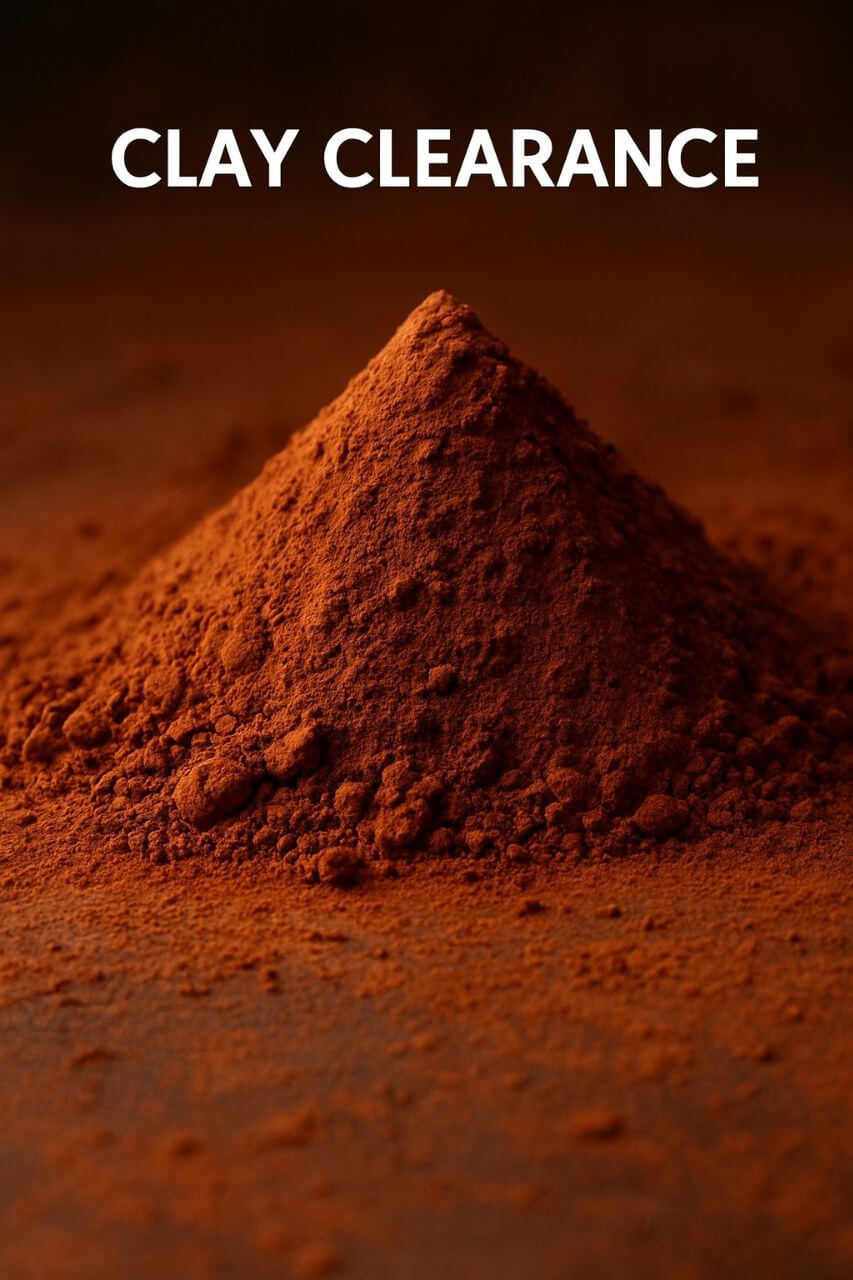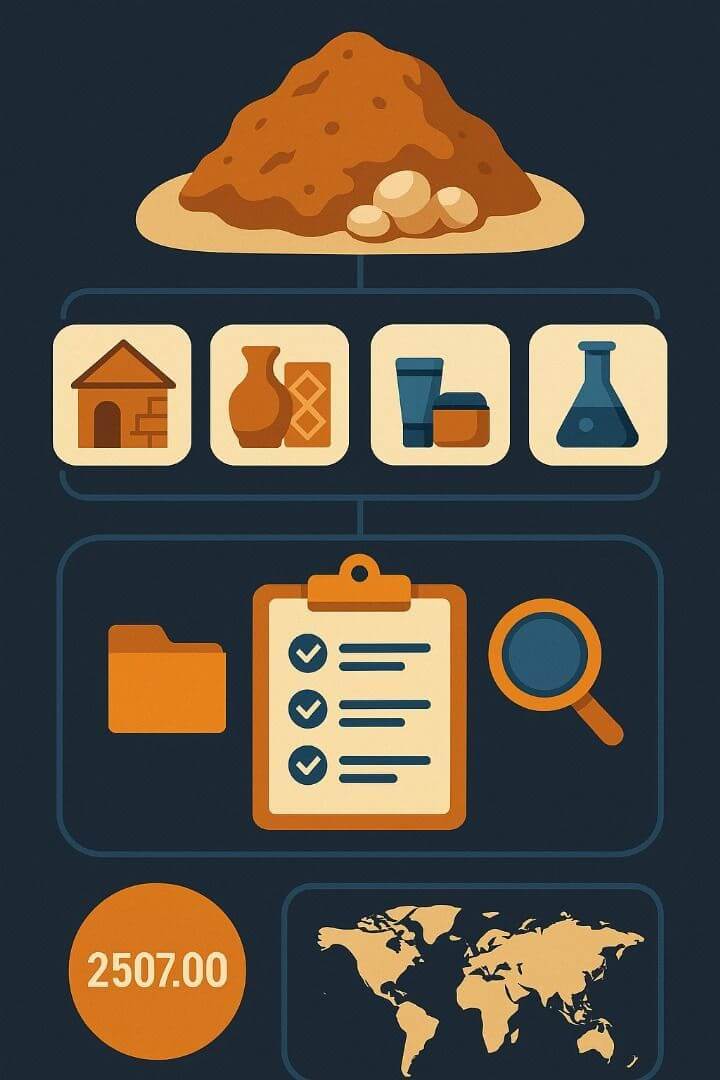Customs Clearance of Clay from Iran Customs (HS Code + Documents and Permits)

For estimating the time and cost of clay customs clearance, contact the experts at Saba Tarkhis.
Instant & Free Consultation1) Technical Features of Clay and Its Applications
Construction and Civil Industries
Ceramics and Pottery
Cosmetics and Personal Care
Chemical Industries and Water Treatment
2) Key Notes for Clearing Clay Through Customs
- Obtaining legal permits: Licenses from the Ministry of Industry, Mine and Trade, and the National Standards Organization; environmental permits as applicable.
- Laboratory testing: Assessment of chemical/physical composition and quality according to national and international standards.
- Alignment with industrial use: For ceramics, pottery, and cosmetics applications, stricter quality control is required.
3) Customs Tariff for Clay and HS Code
| Product | Short Description | HS Code |
|---|---|---|
| Clay (general) | Construction/industrial/ceramic uses | 2507.00 |
| Kaolin (sample) | Fine ceramics/sanitary uses | 2507.00 (sample) |
Exact classification depends on the mineral type (kaolin/bentonite/montmorillonite/illite), processing, purity, and final application.
4) Specific Conditions for Import and Export of Clay
Import to Iran
Export from Iran
5) Import/Export Volumes and Global Turnover
6) Required Documents for Clay Customs Clearance
- Customs declaration: Including type, quantity, value, and exact HS code.
- Proforma Invoice: Price, quantity, and delivery terms for customs valuation.
- Commercial Invoice: Final transaction version with price and payment details.
- Bill of Lading: Including carrier details, route, and type of goods.
- Certificate of Origin: Determining the exporting country to apply the appropriate tariff.
- Required permits: Permit from the Ministry of Industry, Mine and Trade and, for special applications, approval from the National Standards Organization; for cosmetic/pharmaceutical cases, health certificate (Food and Drug Organization).
- Packing List: Package details, count, and weight.
- Insurance Policy: Transport risk coverage.
- Receipt of customs duties payment: For issuance of the release permit.
- Inspection certificate (if required): Verifying compliance with necessary standards.
- Order registration in the National Trade System: A prerequisite for entry, including complete information on the goods/destination.
Need the exact HS code and a documents checklist? Our team manages your case from A to Z.
Submit Proforma Request7) Exporting/Importing Countries and Global Players
8) Global Turnover of Clay and Leading Players

Frequently Asked Questions
What is the HS code for clay?
The general code for clay is usually 2507.00. Depending on the mineral type and application (e.g., kaolin or special uses), the exact heading may vary.
What documents are required for clearance?
Customs declaration with exact HS code, proforma and commercial invoices, bill of lading, certificate of origin, permits from the Ministry of Industry/Standards, health certificate if needed, packing list, insurance policy, duty payment receipt, and inspection certificate (if requested).
Which countries does Iran rely on for clay imports?
Major supply comes from China, India, Turkey, and some European countries. Supplier selection depends on the quality required by the destination industry.
What is the scale of Iran’s clay trade?
Annual imports are estimated at around 1.5 to 2 million tons, and exports around 500 thousand to 1 million tons, depending on industrial demand and regional markets.
Saba Brokerage’s Special Services for Clay Clearance
With extensive experience in clearing mineral materials, Saba Brokerage offers special services for clay clearance:
Service Headings:
- Specialized consulting: Guidance on customs laws and international standards related to importing/exporting clay and document preparation.
- Integrated clearance process management: From cargo arrival to final release with full follow-up and use of electronic systems.
- Quality assessment and inspection: Collaboration with accredited laboratories to confirm compliance with industrial standards.
- Ongoing tracking and coordination: Precise interaction with customs and supervisory bodies to accelerate the process and resolve bottlenecks.
.png)
